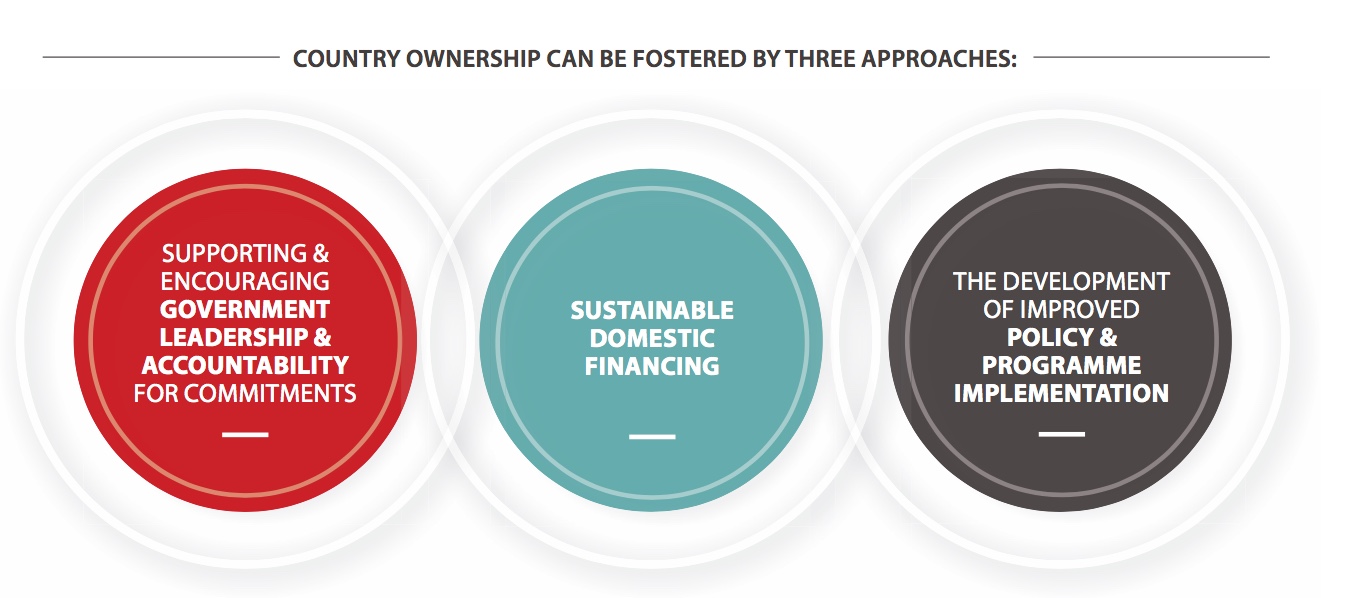“No child should be denied the right to highly effective preventive interventions for unfair reasons, including economic and social causes. All barriers must be overcome” – Margaret Chan, World Health Organisation (WHO) Director General [1]
How do countries overcome the barriers and challenges to ensure all children receive all WHO recommended vaccines? I think country ownership is key, and today RESULTS UK launches, “Owning it: Turning immunisation commitments into action” which sets out why, and how, it can be achieved.
Why country ownership?
One in seven children are unvaccinated and millions more are under-immunised and not protected against all vaccine preventable diseases. Importantly, more children than ever before are being vaccinated but in the last five years’ progress has stalled. Further, immunisation goals agreed by all 194 member states of the WHO in 2012, have fallen worrying off track, and only one of five mid-point goals were met in 2015.
Immunisation is global public good and must continue indefinitely, with vaccines given to every child. A service on this scale, which requires continuing, long term planning and resources, can only be provided by a national government. External financing can help support the building of routine immunisation systems and often provides important financing for supplemental immunisation campaigns, but due to the integral nature of immunisation within a health system, a country must take ownership of the financing and delivery of routine immunisation if we are to reach universal immunisation coverage.
What is country ownership?
In Owning It, we set out three elements which are interlinked and equally dependent on the success of each other in creating country ownership:

- High-level political commitments to improve both immunisation rates and the routine immunisation programme. Immunisation needs to be a priority at all levels of government.
- Sustainable domestic financing for health and, within it, immunisation to support the continuation and improvement of services, especially with the introduction of new vaccines and changing financing from donors. Immunisation programmes need predicable and long-term funding in order to build successful immunisation systems that can be sustained.
- Improved policy and programme implementation, with a focus on equity, is essential if we are to reach all children with WHO-recommended vaccines. Political commitments and domestic financing are wasted without the correct technical capacity to turn ambition into action.
Sri Lanka is one example of what can happen when political leadership, sustainable financing, and dedication to full coverage of all come together. Over 99% of children are immunised, with coverage rates above 90% in all districts. Through government prioritisation of health, which includes immunisation as a core services, dedicated and increasing domestic resources, as well as a determination to turn policies that have reaching very child at the heart of them into action, Sri Lanka has one of the most equitable immunisation programmes in the world. Read the full case study here.
How can we achieve country ownership?
The responsibility for delivering routine immunisation lies with national governments, but all immunisation stakeholders, including donors and technical agencies, have an important role to play in supporting increased capacity and advancements towards full country ownership of immunisation programmes in order to ensure that no children die from vaccine-preventable diseases.
2017 is a crucial financing juncture for many countries; the cost to immunise a child has increased by more than 68% in the last 15 years, and with increased costs to reach the hardest to reach children, and changes in donor support, the potential impact on current and future immunisation rates is significant. Now more than ever, it is important that responsible financing decisions are made, both by countries and donors, to ensure any transition away from donor support is successful. Preparation and planning, alongside continued donor support is essential to ensure historic gains are not compromised. Further:
- Donors, including the UK can provide technical and financial support to countries to increase domestic resources for immunisation and health.
- Parliamentarians can hold their governments to account for commitments made, including those which are off track in the Global Vaccine Action Plan, demanding increases in domestic health and immunisation budgets and better policies which are targeting at leaving no-one behind.
- All immunisation stakeholders, including civil society, should advocate for immunisation to remain high on the global agenda – generating space for political leadership and new commitments that foster country ownership and national action to address inequities.
World Immunisation Week happens once a year and drives important attention to the successes, which should rightly be celebrated, we have made with immunisation since 1990. However, when approximately 1.5 million children die every year from vaccine preventable diseases, there is much more we need to do in the other 51 weeks in the year to drive attention, focus, and more resources to immunisation in support of country ownership. This is the only way we can ensure no one is left behind.
You can access “Owning it: Turning immunisation commitments into action” here.
[1] WHO Press Release, “WHO Director-General addresses vaccine and immunization research forum,” 5 March 2014